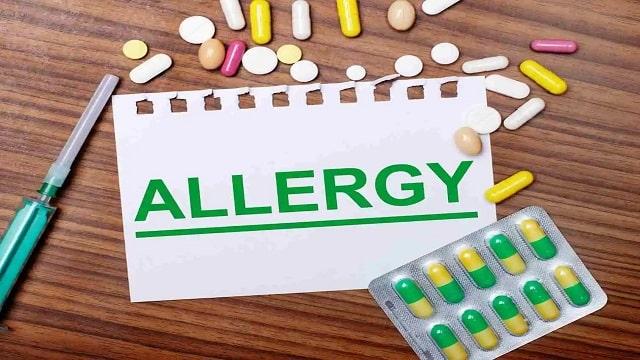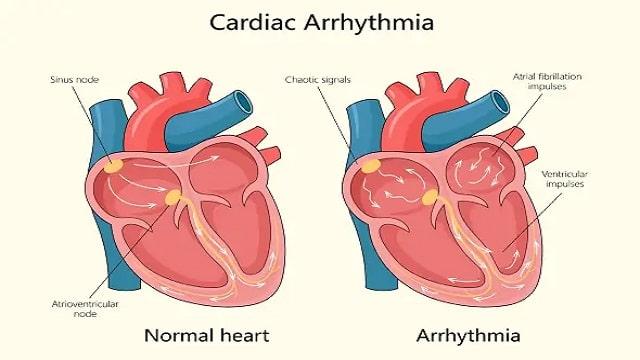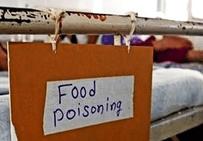
Drug Allergy Symptoms, Risk Factors & Treatment | Diseases List A-Z
What is a Drug Allergy? A drug allergy is an allergic reaction of the immune system to a particular drug.
The immune system misidentifies a drug as a substance that is harmful to the body.
Both chemical and herbal drugs can cause allergic reactions.
The immune system basically helps protect the body from disease.
The immune system is designed to fight disease-causing agents, such as viruses, bacteria, parasites, and other harmful substances.
However, in cases of drug allergies, the immune system mistakes the drug entering the body as one of the body’s invaders.
The body responds to the drug as a threat, so the immune system begins to make antibodies.
It is a special protein programmed to attack threats.
But unfortunately in this case it is a drug that is being attacked.
Drug Allergy Symptoms Symptoms usually occur a few hours after taking the drug.
However, symptoms can also develop gradually, not appearing immediately when first using the drug.
In some cases, new symptoms appear after a few days or weeks of using the drug.
Common symptoms experienced by sufferers include: Red rash or bumps on the skin.
Itchy.
Fever.
Swollen.
Shortness of breath or noisy breathing.
Runny nose.
Cough.
Itchy and watery eyes.
In addition to the symptoms mentioned above, severe allergic reactions or anaphylaxis may be accompanied by: The heart beats fast.
The airways and throat narrow, making it difficult to breathe.
Restless and anxious.
Dizzy.
Loss of consciousness or fainting.
Blood pressure drops drastically.
In very serious and life-threatening conditions, symptoms may be accompanied by: The skin is reddish and painful.
The outer skin peels off.
The skin looks blistered.
Fever.
The rash or blisters spread to the eyes, mouth, and genital area.
If severe or very serious allergy symptoms are found, the sufferer must be rushed to the hospital immediately.
Causes of Drug Allergies It’s possible that you may not be aware of your initial exposure to a drug.
Some evidence suggests that some drugs, such as antibiotics, may be good for the immune system in making antibodies.
Some drug allergic reactions may occur through a different process.
Researchers believe that some drugs may bind directly to a type of white blood cell (T cell) in the immune system.
This event triggers the release of chemicals that can cause an allergic reaction the first time a person uses the drug.
Allergies are also caused by the immune system incorrectly identifying a drug as a substance that is harmful to the body.
As a result, the body will produce antibodies and cause allergic symptoms to arise.
Some drugs that can cause allergies are: Antibiotics (for example Penicillin).
Non-steroidal anti-inflammatory (anti-inflammatory).
Aspirin.
Corticosteroid creams or lotions.
Anti-seizure (anticonvulsant).
Autoimmune disease medications.
Herbal medicines.
Insulin.
Vaccine.
Hyperthyroidism medications.
Chemotherapy drugs.
Drugs for HIV and AIDS infections.
Bee pollen products.
Contrast materials used in imaging tests ( radiocontrast media ).
Anesthetics.
Drug Allergy Risk Factors Not everyone is at risk for it.
Some risk factors are: Increased exposure to a drug, for example, due to repeated use, over a long period of time, or at high doses.
Heredity.
If a family member has an allergy to a drug, a person is at greater risk of developing it.
Having other types of allergies, such as food allergies.
Having allergies to other drugs, for example, someone who is allergic to penicillin will also be allergic to amoxicillin.
Having certain diseases, such as HIV or Epstein-Barr virus infection.
Drug Allergy Diagnosis Diagnosis is carried out through several steps, including: Travel history of drug allergies, history of other allergies, and family history of allergies.
Physical examination related to allergy symptoms, including red rashes, blisters, and checking the condition of the sufferer’s respiratory tract and heart.
Laboratory tests include skin tests and blood tests.
Drug Allergy Treatment How to manage this condition depends on how severe it is.
With a severe reaction, a person should avoid the drug completely.
The doctor may replace the drug with another type of anti-inflammatory drug that does not cause allergies.
If someone has a mild reaction, their doctor may still prescribe it.
However, it is also possible that the doctor will prescribe other medications to control allergic reactions.
Certain medications can help block the immune response and reduce symptoms.
These medications include: Antihistamines The body makes histamine when an allergen enters the body.
The release of histamine can trigger allergy symptoms such as swelling, itching, or irritation.
Antihistamines block the production of histamine and can calm the symptoms of an allergic reaction.
Antihistamines come in the form of pills, eye drops, creams, and nasal sprays.
Corticosteroids This condition can cause swelling of the airways and other serious symptoms.
Corticosteroids can help reduce the inflammation that causes these problems.
Bronchodilator If allergies cause wheezing or coughing, your doctor may recommend a bronchodilator.
This medicine helps open the airways and makes breathing easier.
Bronchodilators are available as liquids and powders for use in inhalers or nebulizers.
Drug Allergy Prevention If you have a drug allergy, the best prevention is to avoid the problem drug.
Steps you can take to prevent this include: Inform your doctor or healthcare provider.
Make sure that the allergy is clearly identified in your medical records.
Also inform other healthcare providers, such as your dentist or other medical specialists.
Wear identification that shows drug allergies.
This can be a medical alert bracelet that identifies allergies.
This information can ensure proper care in an emergency.
.
Related Articles
health
Aquaphobia Symptoms, Risk Factors & Treatment | Diseases List A-Z
October 22, 2024

Aquaphobia is a type of specific phobia that is an irrational fear of something that does not pose much danger.
A person with aquaphobia has extreme fear or anxiety when thinking about or seeing water.
read morehealth
Arrhythmia Symptoms, Risk Factors & Treatment | Diseases List A-Z
October 22, 2024

Electrolyte imbalance in the blood.
Electrolyte levels, such as potassium, sodium, calcium, and magnesium can interfere with the heart’s electrical impulses, resulting in arrhythmias Drug use.
read morehealth
South Africa: Over 40 students hospitalised for suspected food poisoning
October 23, 2024

The information contained in this website is for general information purposes only.
The information is provided by BhaskarLive.
read more